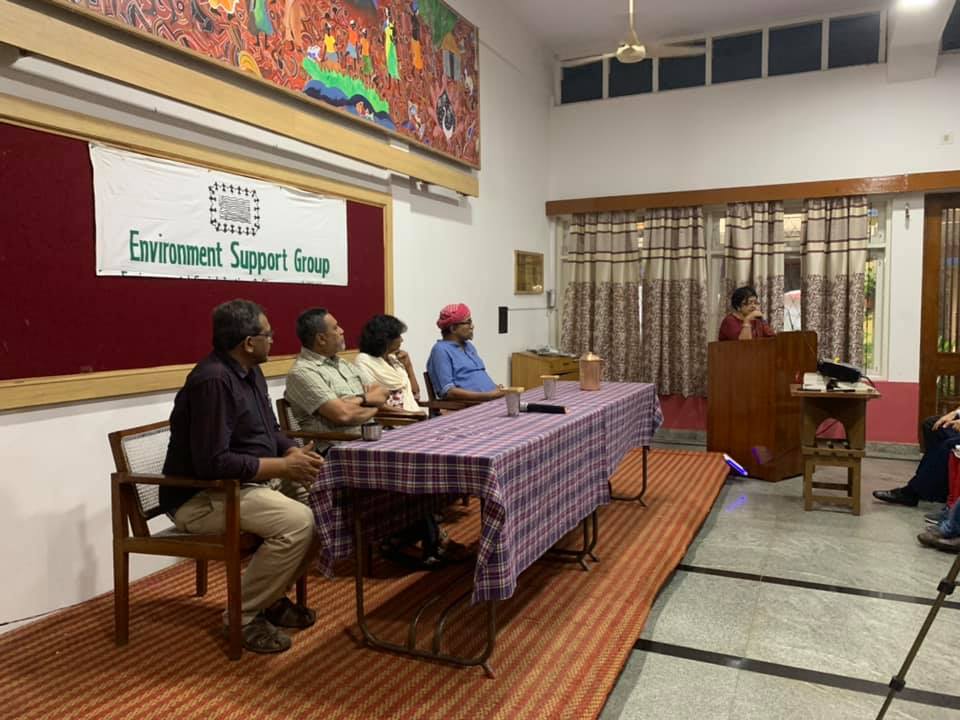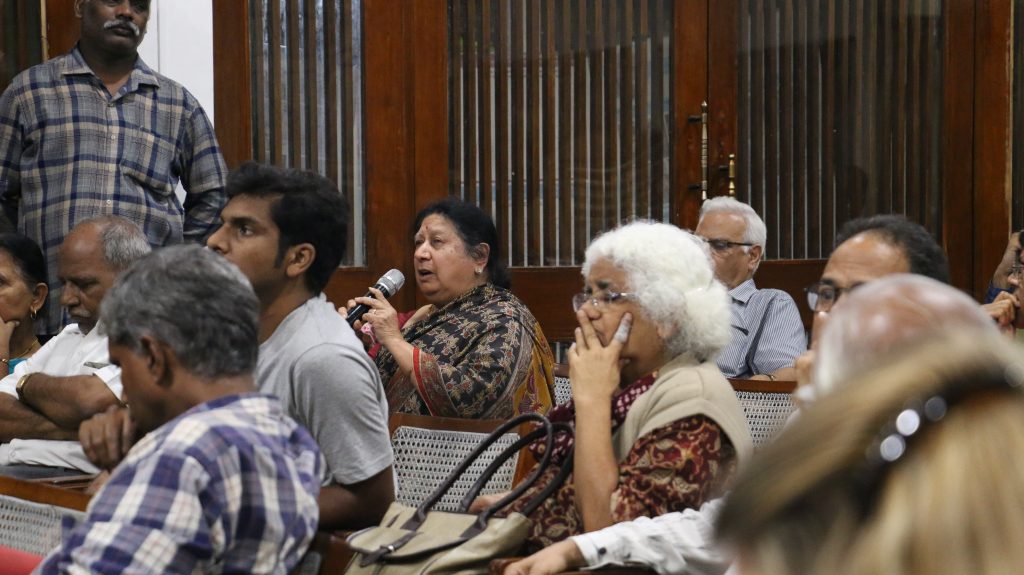Second P M Bhargava Memorial Lecture delivered by Prof. Subir Sarkar on: “Should Scientists be Activists?”

The Second P M Bhargava Memorial Lecture was co-hosted by Environment Support Group (ESG) and Sambhavna Trust on 14th August, 2019 at Bangalore. Prof. Subir Sarkar, who teaches Theoretical Physics at University of Oxford, and is also affiliated with Neils Bohr Institute, Copenhagen and as adjunct professor at Raman Research Institute, spoke on the theme “Should Scientists be Activists?”
The lecture was delivered in light of the developments taking place under the current political regime. It was also very relevant for a lecture remembering PM Bhargava, who wore different hats with equal ease. Bhargava was not just known as a first rate scientists, architect of modern biology in India, an institution builder who built one of the finest institutes in the country — the Centre for Cellular and Molecular Biology (CCMB) Hyderabad, and someone who actively propagated scientific temper through his various writings and support to ventures that seek to promote rational and critical thinking in the country. He was also a fearless activist who took courageous stand on a number of social issues. Even on GM crops, an issue on which ESG has taken a strong stand, Bhargava opposed the release of GMOs without putting stringent safety protocols in place.
Sathyu from Sambhavna Trust spoke about his organisation in which Bhargava served as its chairperson. He recalled about the tragedy that had unfolded on the cold December night in Bhopal in 1984. He said that after the tragedy struck the immediate need among the people was for healthcare. Even after the government spent nearly 400 crores on healthcare post the tragedy, an evaluation by the Sambhavna Trust revealed that there were no standard protocols for treatment of the survivors and no one was getting better as the focus was only upon symptomatic treatment. The Trust also found that the tragedy had become a windfall for the pharmaceutical companies. A dozen multi-international pharma companies were benefiting from the tragedy by cornering the drug market in Bhopal. One of these companies was found to be owning a methyl isocyanate (MIC) plant in West Virginia, the very gas responsible for the killing and maiming of thousands in Bhopal. So on one hand while the company was selling the very gas that caused the Bhopal Tragedy it was also profiting from selling broncho dilators to the victims of the gas leak. The Trust found that most of the pharmaceutical corporations were tied up with chemical corporations.
Under such circumstances Sambhavna Trust was set up. The speciality of the Trust is that it focuses on treatment through an integration of modern medicine, Ayurveda and yoga. The Trust has successfully functioned for nearly 25 years with the help of individual donors and Prof Sarkar has been a Trustee of Bhopal Medical Appeal which aid Sambhavna Trust with the collection of donations.

Prof Sarkar began his lecture by saying that the question posed as the theme of the lecture can be best answered by considering the idea if scientists are also citizens who have civic and social responsibilities. To further elaborate this point he referred to an editorial titled “Scientists must rise above politics — and restate their value to society” that featured in Nature. At a time when scholars and scientists globally are feeling the heat from politicians there is a need that they take inspiration from the scientists of the 1950s who raised an alarm over nuclear weapons. So there have been instances in the past when mainstream scientists have engaged with social issues. Like when Albert Einstein co-authored a report on avoiding nuclear war, which led to the Pugwash Conferences, and helped create non-proliferation agreements.
He also pointed out that India is the only nation in the world which has scientific temper explicitly written in its constitution as a duty of every citizen. Art. 51A (h) of the Indian Constitution states that it shall be the duty of every citizen of India to develop the scientific temper, humanism and the spirit of inquiry and reform. This applies to the scientists of the nation as well. His talk also focused on the aspect of rigorous scepticism which is built into the method of enquiry of science. The ability to deconstruct that scientific methods offers can be used to make the facts known for broader consumption.

Prof Sarkar also made some important points during the discussion session with the audience members. One of them was about the promotion of citizen science in the country. According to him research should not remain the domain of a professional scientist alone. Citizen science can be used to energise a large body of individuals who themselves may not be professionally trained in scientific research but can contribute by collecting data on behalf of those who can analyse them.
Prof Sarkar’s talk was followed by an engaging Q & A session, moderated by Suprabha Seshan, where the audience asked several relevant questions.




The lecture concluded with Suprabha Seshan pointing out how Truth can be no single person’s domain nor can it be an ‘ism’ or an ‘ist’. So be it a scientist or an activist, truth is equally close to both. 7

To watch the complete talk:
Click here for Part 1: https://www.youtube.com/watch?v=FkN5iDO9-hU
Click here for Part 2: https://www.youtube.com/watch?v=mgNX_F5i9G4&t=3616s

